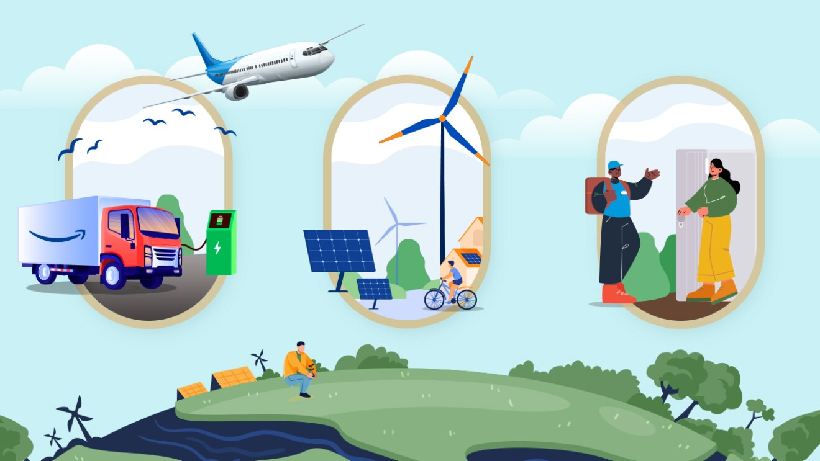In Short : The UK’s 2050 net-zero goal signifies a commitment to achieving a balance between greenhouse gas emissions produced and removed by that year. This ambitious target involves transitioning to cleaner energy, sustainable practices, and offsetting remaining emissions to address climate change effectively.
In Detail : Recent efforts towards the UK’s 2050 net zero goal, such as promoting green skills and offshore wind capacity ambitions, are outlined here by Open Access Government
The Rt Hon Graham Stuart MP, Minister of State (Minister for Energy Security and Net Zero), has been in office since 7 February 2023 and is in charge of the Net Zero Strategy alongside other responsibilities such as oil and gas, review of the electricity market, plus COP and international climate policy. (1)
Net Zero Strategy: Build Back Greener seeks proposals and policies to decarbonise all sectors of the UK economy to meet the 2050 net zero target. (2) Let’s now investigate net zero in more detail.
Help developing countries achieve their net zero goal
In December 2023, Minister Stuart announced details of a £140 million fund to help developing countries achieve net zero while boosting their economies. Countries that want to follow in the footsteps of the UK and increase their reliance on clean energy will receive billions of pounds to help them make the switch, but they must lower their emissions to qualify.
Minister Stuart said the UK helps other nations act quickly “to switch to renewable energy and slash emissions on the pathway to net zero, all while creating thousands of new green jobs.”
With an extra £140 million, the UK leads the world in supporting developing countries to “unlock innovation and clean tech in this critical decade for our climate,” Minister Stuart added.
Reduce emissions and costs in developing countries
£160 million funding announced in September 2023 seeks to lower emissions and costs in developing countries. Minister Stuart spoke at the UN Climate Ambitions Summit in New York to highlight the UK’s role in tackling emissions and achieving net zero.
The funding is part of the UK’s commitment to support developing countries in their endeavours to combat climate change, with the UK pledging to invest £11.6 billion in international climate finance during the 2021-2022 and 2025-2026 periods.
Minister Stuart also highlighted the need for developing countries to secure their industries for the future and for the UK to support them throughout their industrial transformation. The UK accounts for 1% of global emissions, so working with other countries worldwide will be required to achieve the net zero goal, Secretary of State for Energy Security and Net Zero Claire Coutinho commented.
Green skills for net zero
We also understand that green skills will continue to be in high demand as we move towards net zero as part of the UK Government’s energy strategy.
According to the UK Government’s net zero growth plan, the voyage towards a greener and more sustainable future will create hundreds of thousands more green jobs in areas like solar panel and heat pump maintenance, electric vehicle production and environmental consultancy. According to Minister Stuart, the UK’s climate target and net zero ambition necessitate a workforce to meet them, a point he touched upon further.
“Whether it’s manufacturing electric vehicles, installing heat pumps, or building wind turbines, this funding will help train the tens of thousands of skilled workers needed to power our green industrial revolution and grow the economy,” Minister Stuart revealed.
“Businesses are crying out for more people with technical skills to fill the great jobs we have today and new ones in the developing green economy,” Jane Gratton, Deputy Director of Public Policy at the British Chambers of Commerce, added.
Some other net zero updates
As of September 2023, the UK Government’s flagship renewables scheme has funded more clean energy projects than ever, helping the UK reach net zero, grow the economy, safeguard families and businesses from volatile global gas prices and bolster energy security.
In this vein, Minister Stuart declared, “Offshore wind is central to our ambitions to decarbonise our electricity supply and our ambition to build 50GW of offshore wind capacity by 2030, including up to 5GW of floating wind, remains firm”.
Did you know that in Q1 2023, renewable energy accounted for 48% of UK electricity generation, all on the way to achieving decarbonisation of the power sector by 2035 and net zero emissions by 2050?
From August 2023, British businesses can access new guidance and support to help them lower their energy bills while reducing their carbon emissions. According to Minister Stuart, the UK has reduced its emissions by more than any other major global economy. Minister Stuart then discussed the UK Business Climate Hub and measures to help businesses progress to net zero.
“The new UK Business Climate Hub is a one-stop-shop for businesses to find practical advice to reduce their carbon footprint and save on their energy bills.
“Whether it’s fitting a low-carbon heat pump, generating energy with solar panels, or reducing the emissions from shipping goods, the new support will ensure businesses can drive towards net zero.”
Reaching the net zero goal by 2050?
We look forward to the next chapters in the UK’s net zero story. We extend our best wishes to Minister Stuart and all his successors as they strive to achieve the 2050 net zero goal. Some of the areas of action outlined here include support for developing countries, promoting green skills, and offshore wind capacity ambitions.
Plus, achieving net zero by 2050 will require at least one-third of the emissions reductions to come from technologies not yet commercially available. To this end, the UK works with global partners to speed up the global green transition, enabling clean technologies to be more affordable, available and dependable for all.

